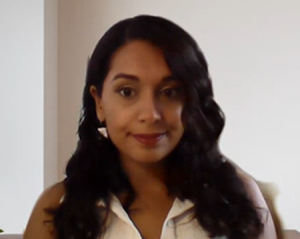Karina Mendonca, a former Biomedical Sciences student, talks about her experience working as a medical writer. Read more to find out about her career journey and advice she would give to anyone wanting to work in her area.
What are you doing now? Please give us an outline of your current role, including any responsibilities, main tasks, or projects you are working on.
I am currently working as a Scientific Writer at Parexel for the site engagement team. I have developed study newsletters, resources to facilitate recruitment for clinical trials, content for investigator meetings and many other materials. The tasks we do vary day by day, which is exciting as things are never mundane. If you are creative, have an interest in the medical field and love writing, you should definitely consider a job in MedComms!
Is this job role what you expected? What has surprised you about this position/industry?
I did a lot of research into the role before applying so I didn’t receive too many surprises. The thing that surprised me the most about the role is that you receive opportunities to travel, which is fantastic!
How did you get there? Please detail the steps you took to working in your current role. This might include work in other industries.
My first few jobs were customer facing roles in retail. Following this, I worked in the NHS as a Social Prescribing Link Worker. During this period, I wanted to obtain a conversion degree in Psychology so I could do a Doctorate in Clinical Psychology. However, I decided to become a Medical Writer instead.
What made you focus on this career? Did you have any defining moments, turning points, or changes of direction?
Whilst working as a Social Prescribing Link Worker, I had a fantastic GP/mentor who was very passionate about helping patients and raising awareness for the social prescribing service. He asked me to create informative documents and reports to educate healthcare staff about the impact of the social prescribing service on patient outcomes. I felt excited and passionate whilst creating these materials, which inspired me to take a more creative direction. In addition, I missed learning about new disease areas. All of these factors made me consider a career change to Medical Writing.
Which barriers did you overcome? Were there any that couldn’t be overcome and that changed your career direction?
It can be difficult to get that initial role in MedComms. Companies often prefer to hire applicants with PhDs, whereas I only had an Masters degree. I remember applying for loads of roles and not hearing back, or receiving an interview and getting rejected at the final stage. All of these experiences can be disheartening. However, they helped me to become emotionally resilient. I looked at every failure as a learning opportunity and used these experiences to improve my outlook in life. In addition, I constantly updated my CV, applied for new roles and tried to build rapport with MedComms recruiters and talent acquisition teams.
Do you have any tips for people interested in working in your area?
Don’t give up if you’re interested in pursuing a career in MedComms! It can be difficult to get your foot in the door, but once you’re in, the world is your oyster. There is a huge recruitment drive so you will never be short of a job. In addition, you should:
- Make sure that your LinkedIn profiles are up to date
- Contact recruiters / talent acquisition specialists for companies of interest to gain more information about the job requirements
- Look at job descriptions and build on the skills listed in your free time
- Apply for as many MedComms jobs as you can to experience the interview process and writing test
To hear more from Karina, visit our global interviews page!
